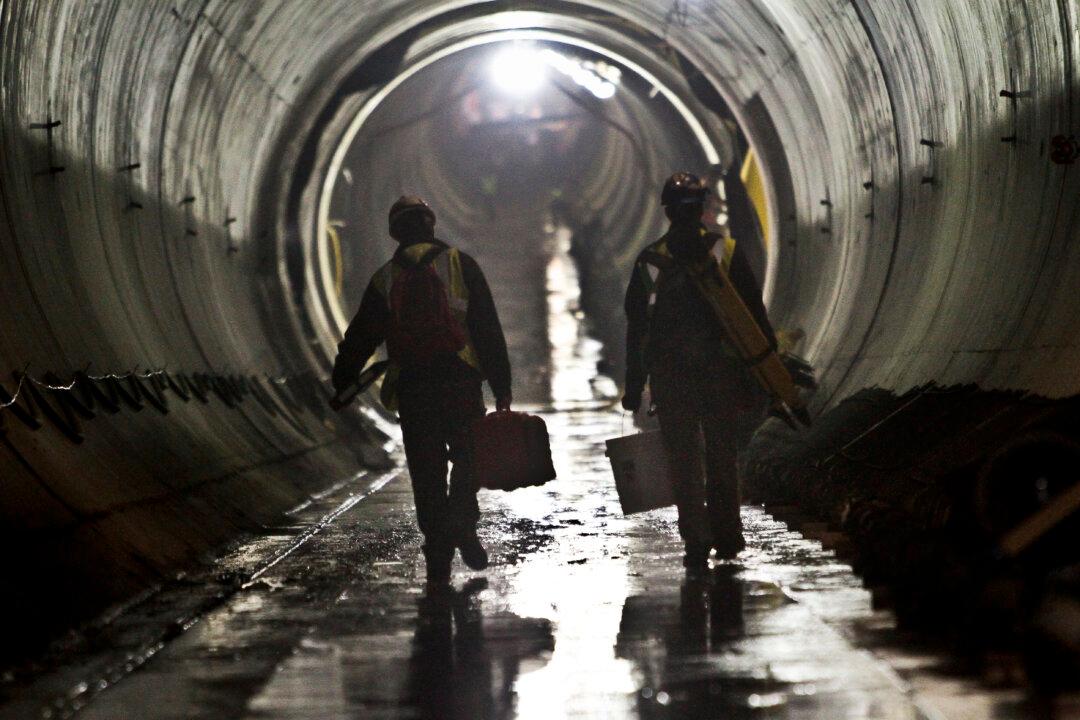NEW YORK—A deal has finally been struck to fund the New York City region’s mass transit capital spending program, ensuring that vitally needed infrastructure upgrades — including repairs to damage wrought by Superstorm Sandy — will be underwritten for the next five years.
The $26.1 billion agreement to fund the Metropolitan Transportation Authority was jointly announced Saturday by Gov. Andrew Cuomo and Mayor Bill de Blasio, who had spent weeks sniping at each other about the city’s contribution as the Oct. 28 deadline to adopt the plan loomed.
In the end, the city upped its offer late this week to $2.5 billion. The state is contributing $8.3 billion and the rest is made up of pre-existing dedicated revenue streams.
Both men released statements stressing the importance of the MTA — de Blasio called it “the backbone” of the region’s economy, while Cuomo opted for “the lifeblood of New York” — and praising the deal, which features the city’s largest contribution to the capital fund.
The warm words stand in sharp contrast to the men’s bickering in recent weeks as the fate of the MTA program became the latest front in the ongoing battle between two Democrats who once considered themselves friends.
When de Blasio repeatedly accused the state of tapping into the capital fund for other needs, Cuomo called his concern “a joke” and, while noting that the majority of MTA riders are city residents, implored the city “to do its fair share.” He originally asked the city for $3.2 billion; City Hall initially offered $627 million.
The negotiations remained tense and included calls between de Blasio and Cuomo, a rarity in recent months as their feud has intensified. But negotiations between Emma Wolfe, the mayor’s top political aide, and Melissa DeRosa, a senior aide to the governor, helped bring the deal across the finish line.
Both the city and state have vowed to fulfill obligations and divert any of the committed money to other projects.





